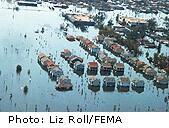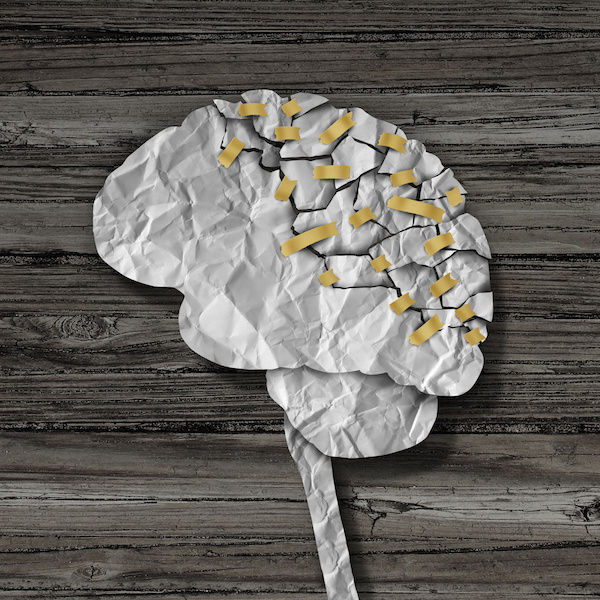
THURSDAY, March 7 (HealthDay News) — New studies suggest that severe stress caused by the devastation of Hurricane Katrina and fallout from the Greek financial crisis boosted the risk of heart attack for people living through those crises.
A New Orleans hospital saw a threefold spike in patients admitted for heart attacks after Katrina battered the Gulf Coast region in 2005, according to an American study. The higher numbers lingered into at least 2011, and researchers don’t think they can be explained by anything other than hurricane-related stress in a city wrenched by loss of loved ones, property, pets, jobs and more.
“Whenever a major disaster hits a city, everybody thinks of rebuilding. That’s all everybody thinks of. It’s also important to pay attention to the health of the community,” said study lead author Dr. Anand Irimpen, associate professor of medicine at Tulane University Heart and Vascular Institute in New Orleans.
While the studies don’t prove that stress caused people’s hearts to give out, they do suggest a link, experts say.
“Stress is a known risk factor for both the development and progression of heart disease,” said Donald Edmondson, assistant professor of behavioral medicine at the Center for Behavioral Cardiovascular Health at Columbia University Medical Center in New York City.
“Acute stressful events have been shown to increase the incidence of heart attack in the subsequent days and weeks, but few studies have assessed the long-term cardiovascular impact of such events,” said Edmondson, who was not involved in the studies.
These heart-harming catastrophic events aren’t limited to natural disasters. A study of the health effects of the economic crisis in Greece reports an increase in heart attacks between January 2008 and December 2011, compared to the four years before financial tumult rocked the nation.
Heart attacks were 21 percent to 39 percent more likely after the crisis began, and the researchers point to widespread unemployment as a major stressor there. Higher heart attack rates were seen especially for women, who have a greater unemployment rate than men, and people older than 45.
These studies are scheduled for presentation Thursday at the annual meeting of the American College of Cardiology, in San Francisco.
The Katrina study examined admissions to Tulane University Hospital and found that heart attacks represented 2.4 percent of patients in the six and a half years after the hurricane and less than 1 percent in the two years before.
Also, the post-hurricane heart attack patients had sicker hearts and were more likely to have other problems such as depression, addiction and unemployment.
“It could be that the whole milieu has changed,” said Irimpen, the study lead author. “There are sicker patients having more coronary artery disease and are on more medications.”
Could it be that New Orleans simply has more poor residents now who perhaps don’t take care of themselves or have good insurance? Irimpen said the city actually has a wealthier population than before. “The people who came back are the ones who could afford to rebuild,” he said.
Irimpen, who said the increase in heart attacks was higher than the researchers expected, blames stress as the trigger.
What do the findings mean? The immediate consequences of disasters grab attention, Edmondson said, but they also “usher in much longer periods of struggle for economic and psychological well-being, which take a heavy toll on the cardiovascular system.”
Currently, he added, “We rarely count these long-term health outcomes in our reckoning of the costs of disasters, but perhaps we should.”
Another study scheduled for presentation at the meeting found that heart attacks and sudden deaths spiked in Japan after the 2011 tsunami and earthquake. Researchers attribute this to the disaster’s psychological toll, not the resulting environmental havoc.
And in yet another example of the heart’s response to long-term stress, New Orleans researchers were to report at the heart meeting that a shift in the timing of heart attacks noted after Katrina has begun to return to normal.
Heart attack rates usually peaked on weekday mornings, the first day of the work week, but for five years after the hurricane they occurred more often on weekend nights. Recently, however, Monday heart attacks began creeping up again, suggesting that the city might be seeing a return to typical work-week patterns.
The authors of these studies say the findings could influence decisions about hospital staffing in the wake of global disasters. However, data and conclusions presented at meetings are typically considered preliminary until published in a peer-reviewed medical journal.
More information
The American Heart Association has more on stress and heart health.

